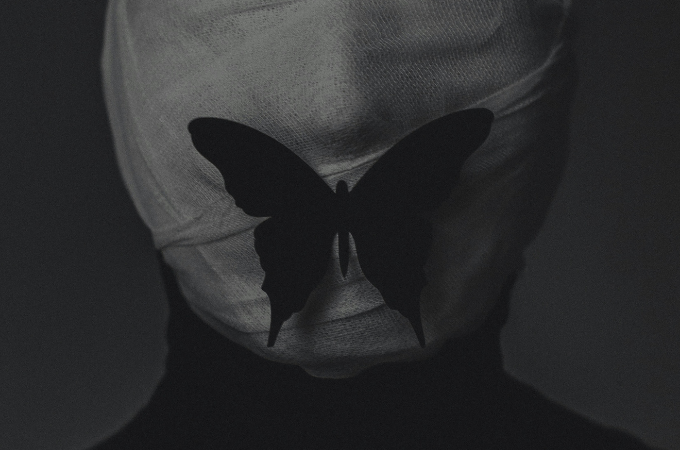
My father told me this story at age 12. A family friend came back from Ugwu Awụsa with his family of four, now three. It is about real people and real events and as you read, I beg you not to forget.
Echezọna
You bumped against the metal railing on the lorry as the vehicle went into another pothole. The man who had been sitting with you earlier now lay at your feet, fast asleep; saliva dripped from his slightly open mouth and you looked away, somewhat disgusted.
“Chineke daalụ, anyị erugo Ọnicha!” someone shouted and there was a brief shuffling inside the vehicle. You looked up at the cloudy sky and wondered if the rains came. If there would be drops of blood instead of a shower of rain. You heaved a sigh of relief, releasing a breath you didn’t know you were holding. Your husband held your sweaty palms in his, “Obi m, we are home.”
The night was eerily quiet as you crouched behind the anthill, your hands firmly over Kamsiyonna’s mouth. “Ekwukwana okwu,” be quiet, you whispered to her as you rocked Sorom who was fast asleep on your back.
That afternoon, you had been playing The Chordettes’ latest album on the big stereo in the living room while cleaning the shelves, with Sorom tied on your back. She had finally slept off after thirty minutes of breastfeeding. In the four years you’ve been in Kano, you have transformed from the nervous eighteen-year-old bride that had clung like a leech to her new husband’s arm, walking into the compound with a rusty gate with peeling paint. The compound had been a disappointment from whatever dream house you had conjured up in your mind right from the moment your mother came into your room to whisper into your ears that Onye Nkuzi, the young and handsome teacher from Kano, was the visitor that called that Sunday afternoon.
The Sunday visits became frequent and soon, a pattern developed — the casual giving of cloth and slim wads of money, accompanied by “Ka a chọrọ ụmụaka ihe,” a little thing for the children. It was unspoken, but everyone including your father knew that there were behind-the-scenes reasons for Onye Nkuzi’s more frequent visits. Days passed. On a hot Sunday afternoon, Onye Nkuzi knocked at the gate of the compound as usual. What was rather unusual — your sister, Nwanne, told you — was the small group of people that accompanied him and a jar of palm wine which was kept from frosting over by palm frond. Soon, you were the bride to the soft-spoken teacher.
You were interrupted from your mind reverie by the loud knocking on the door. It was Ahmed, your neighbour from the oldest house in the compound, the one which your husband said he had lived in during his early days in Kano. Ahmed, who played ayo with your husband on Sunday evenings, while playing one of those tunes which had never made any meaning and always sounded like a dirge to you on his small radio blackened by dirt. Ahmed, who was startled when Okezie, your husband’s friend from college, Enugu, had enfolded you in an embrace and called you Nwunye Anyị when he visited from Lagos. Ahmed would ask you two days later why your husband would permit his friend to touch his wife. You laughed at the question. “It is our culture, we embrace people, just the way you prostrate,” you tried to explain. He scoffed and swore that he would cut off the hand of the man that tried to touch his wife, culture or no culture. You had laughed at the intensity of his resolution. Ahmed, who was now standing at the door, talking to your husband in fierce, urgent whispers.
“Obi m, we have to leave now, there is a riot,” he whispered urgently, his face ashen and eyes averted from looking at you directly, running into the kitchen to pour the pot of jollof rice you cooked into one of the polythene bags that were hung in the kitchen.
“Obinna, relax, it must be something trivial,” you had said, trying to calm him down. You knew Obinna, he could be an intimidating figure, raising his voice at the offenders at the Nzukọ Ụmụ Uga bi na Kano, a caring father with your children, a loving husband to you, an experienced lover in bed, a teacher to his students and you also knew him to always take things seriously, sometimes too seriously.
“No, they say the major roads are blocked, we have to go through the bushes.” Your heart leapt in fear at his words as you ran in and out of the rooms, at loss for words, not knowing what to do. You did not know what to take and what to leave behind, there were lots of things to pack and at such a short notice.
Someone banged on your door and you crouched behind a chair, your heart thumping. It was Ahmed. “Let’s go,” he said, “they are coming, I’m with my car.” Your husband lifted a sleeping Kamsiyonna onto his shoulder, you fastened the ọjà to secure the baby on your back and you ran down the steps barefooted to the door of the car which was already open. Every other thing happened in a blur.
Ahmed, pleading with the boys with wicked axes outside the gate to let you and your family pass, your husband pulling open the door of the Volkswagen and pushing you and the children into the bush, the brief struggle between Ahmed and the boys, Ahmed’s body on the ground, blood pumping out from an ugly gash on his throat, your husband returning into the bush with blood splattered on his white shirt. You had looked at him, questioning. “He is dead, so are the boys,” he had said and shut his eyes briefly as if in prayer. He opened his eyes after a few seconds, “We have to keep moving.” You scurried through the bushes like a mouse, behind him, Sorom still strapped on your back sleeping; thorns tore at your clothes and sometimes at your flesh as you made your way deep into the dense forest. Your feet were spared as you had managed to secure a pair of slippers from the small bundle your husband had hurriedly packed.
Suddenly the sound of running footsteps began to close in and your husband signalled to you and Kamsiyonna to crouch. The baby was startled awake, she looked around and uttered a shrill cry; you unstrapped her from your back, placing your left nipple into her mouth. “Sorom, shhh,” you cooed when she refused to suckle on the breast and kept wailing at the top of her voice. You covered her mouth with your hands as the cry became louder, rocking her quietly and crying silently. The sound of footsteps was closer, it was obvious the pursuers had heard the voice of the infant and were following it with determination.
“Obi m,” your husband whispered. It was both a plea and a prayer; they were close now and you could make out their laughing voices, and the sound of their axes cutting down shrubs, seeking you and your family out.
“Sorom, bikonu,” you pleaded, but the Goddess of Fate was up to her mischief as the baby kept on hollering. You looked at your husband in defeat and he brushed away a tear as he took the child from your arms. You knew what he was about to do — the needful. One for all.
You looked away as he reached down into the blanket for the screaming child. The tiny voice died down quickly. You looked at the now silent bundle; those eyes were open, staring, and the tongue peeked out of the small, open mouth, out of those lips which were now pale blue. You held your breath for as long as you could as the pursuers tried to seek you out among the dense shrubs, cutting away defiant plants that stood in their way. “We heard them, the baby was crying,” one of them said. He was a child, definitely younger than Chukwusolukwuo your youngest brother, not more than thirteen; his agbada was splattered with blood and his axe gleamed in the moonlight. They walked past you, making their way to the other end of the forest.
“Obi m, they are gone now,” he started, reaching out for your hand but you stood up, brushing off the leaves that fell on your laps. There was no need for words. The lorry came, its headlights on, seeking the occupants of the bush; seeking the fleeing ones, those still alive. Ojukwu’s lorries, they were called, after the Eastern Governor Odumegwu Ojukwu who sent them to rescue the fleeing Igbos and bring them back home. You still clutched the plastic bag in your palm as you walked behind your husband out of the valley of death. “Go to Daddy, let him carry you,” you whispered to Kamsiyonna, who was crouched behind a tree, frightened and silent. You couldn’t bear to think of what was going on in the mind of the six-year-old child who watched her father smother and choke her little sister to death. She hesitated, her eyes gleaming with unshed tears. “Go, nne, gawa,” you said again and with faltering steps she walked to your husband who lifted her to his shoulders as you left the bush, leaving Sorom, leaving for safety.
The lorry was filled with people; you sat near a man with a bandage tied around his head and a bloodied stump where his right arm should have been. You untied the plastic bag and began to feed Kamsiyonna with your hands. “Come and eat,” you said to the man and he thanked you before he wolfed down the food in eager mouthfuls. “My wife and children did not make it out. Ha apụtaghị,” he said after some time as if the revelation was a kind of payment for the food. You nodded, not sure of what else to say. How could you tell this man that your own daughter could not make it out? Something warm began to soak your shirt, you didn’t need to look to know that it was milk trickling from your breasts, milk that Sorom had refused to suckle that night, milk that would go now unsuckled. Your breasts were getting heavier and fuller, and when your finger brushed by the tip, you took in a sharp breath of pain.
Your husband tapped you. “I brought these, obi m,” he said and handed you a package wrapped in cloth. The cloth had some dark red stains and you wondered fleetingly if it was blood. You untied the parcel with shaking hands; it was your black leather Bible, the one your mother squeezed into your hands after your wedding, the day you left Uga for Kano. In between the pages was a Nina Simone CD, you stared at the picture of the full-lipped black woman who held a cigar between her lips and sighed. He knew how much those songs meant to you, you had always preferred Billie Holiday, The Chordettes and Nina Simone to his indigenous Sunny Ade and Rex Lawson. He knew how much those songs meant to you and would tease you for not being patriotic. Patriotism, that word now seemed too heavy to pronounce, too blurred to have a real meaning. “Thank you. Daalụ,” you breathed and he nodded and squeezed your shoulder.
Uga would smell of rain, you knew, unlike Kano that smelt of dust, and in these last moments, of blood and death, there would be no house flies too. Those huge flies that buzzed loudly and startled you the first time you came to Kano as a bride. Your husband had laughed when you bought an insecticide and scrubbed the meat with two teaspoons of salt till your fingers ached. You would get used to it, he had said, and you had gotten used to it. As you made your way to the compound where his parents and younger siblings lived, the first thing you would notice would be the absence of flies. No one would talk of your skin which was darker from the fierce rays of the sun in the North, nobody would say, “Ị na-eji ka ndị Awụsa,” and laugh in that tone that depicted both envy and admiration, you were after all the wife of the teacher that lives in township, Onye ọlụ oyibo. Nobody. The massacre had left people without words.
Your mother-in-law would embrace you tightly and whisper, “Sorom?” You would nod and she would embrace you again, leading you into the house.
“Agha ajọka,” your father-in-law would say, war is ugly, and you would bite your lips to hold back the tears. War is ugly and also ugly were those corpses that littered the road, also ugly was your little bundle you left in the bush. You would sit near your husband when the sympathisers trooped in. “O riri isi nwa m nke ikpeazụ,” he would say. It took Sorom, for there were times when the weight of silence was so heavy it took a daughter.
Photo by Sergey Vinogradov on Unsplash



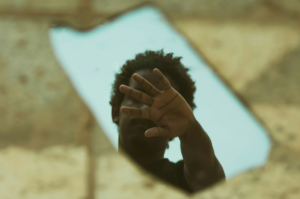
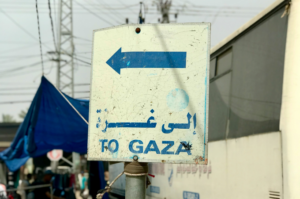
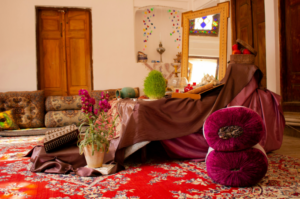
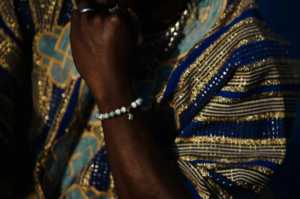
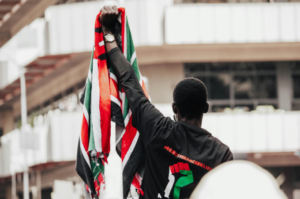


Precious December 09, 2024 19:26
Omggg I love it!! The way you articulated your words so well! It’s giving chimamanda in the best way possible Excellent story telling❤️